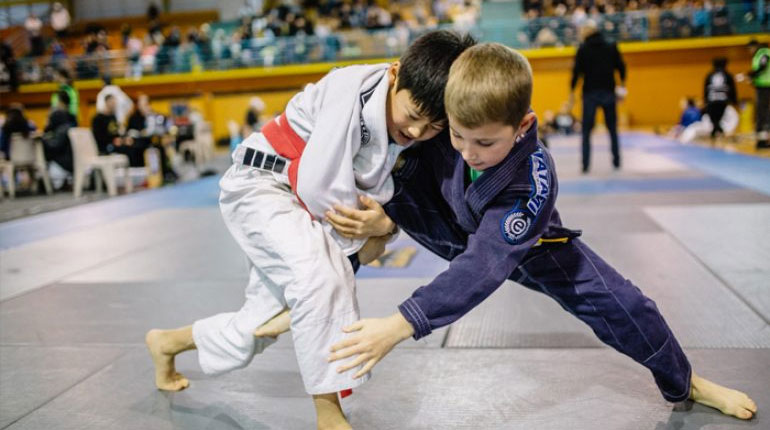
It is fairly common for children between the ages of 2 and 6 to go through a period of temporary stuttering or stammering. This is the time when most children undergo speech and language development.
Nearly 5% of all kids will stutter for some duration in their life, ranging from a few weeks to many years.
Nearly, 80% of children outgrow stuttering or recover from it.
For the remaining children, stuttering can become a lifelong challenge, especially if they do not receive the necessary support from their parents, caregivers, and teachers and have little or no access to speech therapy, anti-stuttering tools aids, etc.
According to the National Institute on Deafness and Other Communication Disorders (NIDCD), nearly 3 million Americans suffer from this speech disorder, often referred to as stuttering, stammering, or speech disfluency.
Whether your child is under 6 years of age or s/he has been stuttering for many years now, you as a parent can play a crucial role in how s/he perceives this challenge and prepares herself/himself to manage or overcome it.
Learning how to talk to a stuttering child is important. It can help promote speech fluency from an early age. Children cannot figure out how to stop stuttering or how to manage it on their own.
How to Parents Help a Stammering Child?
Listed below are some of the best ways parents and other adults at home should talk to children who stutter.
Slow Down a Bit When You Talk To a Kid Who Stutters
Try not to be in a hurry when you speak or interact with a child who stutters.
Be sure to take frequent pauses when you speak.
It is a good idea to wait for a few seconds immediately after your child finishes a sentence or before you start speaking.
Instead of responding with comments such as, “Slow down, Jack,” or “Try it again, Jack,” you should try to model slow, relaxed, and comfortable speech.
Children who stutter are more likely to feel at ease this way. They will observe your behavior and try to emulate relaxed speech.
Be Fully Present When You Listen to a Child Who Stutters
One of the best ways to help a stuttering child at home is to give them your undivided attention for as long as possible.
When your child is speaking, be sure that you are “really listening.”
Yes, it does not mean you drop everything each time s/he speaks.
But, you’ve to make an effort towards increasing the number of occasions when you listen attentively to your child.
You can, for instance, be genuinely interested in having a conversation when s/he is sharing an idea, asking a question or narrating an experience s/he had in the playground or at school.
Avoid Asking Too Many Questions At Once
It’s okay to ask questions when you interact with your child. It’s a normal part of raising a child.
But, if your child has been going through a period of stuttering, it is advisable to resist asking multiple questions at once.
Wait for your child to answer one question at a time. Let her/him speak before you drop the second question and so on.
Ensure Fewer Interruptions When Family Members Talk to Each Other
Frequent interruptions can easily induce time pressure.
Children who stutter can have a difficult time participating in a conversation if there are multiple people talking/listening at once.
For a stuttering child, it’s easier to talk, join a conversation, or respond to comment if parents and other family members take turns to talk and listen.
This is a part of modeling relaxed speech for a child trying to overcome stuttering or stammering.
When Your Child is highly disfluent
Avoid pushing your child to speak on days when s/he is highly disfluent.
It may be because they are stressed out. Emotional conflicts, illnesses, and other traumatic experiences can aggravate stuttering to the point a child does not wish to talk to anyone.
Patiently wait until your child is willing to talk again.
Boost the Confidence of a Child Who Stutters
Confident children can take on life’s challenges more easily.
You can build on your kid’s confidence in various areas (unrelated to talking) by continually reinforcing them on what they do right.
For example, you can praise strengths such as problem-solving, punctuality, cleanliness, being organized, athletic skills, good handwriting, observation skills, ability to memorize something, etc.
Instead of merely saying, “That’s great, Jack,” try to use more descriptive phrases such as, “Wow, you are really good at this, Jack,” “I am so glad you are learning this very fast,” “Wonderful, Jack. I am proud of you.”
Should You Use the Word ‘Stutter’ or ‘Stammer’?
It is a good idea not to use the word ‘stutter’ or ‘stammer’ when you are talking to a young child or someone else in front of her/him. You can, however, use more descriptive words such as “Jack gets stuck, sometimes.”
But if your child is already aware of fact that s/he needs to deal with stuttering or stammering, it’d make no sense for everybody else in the family to avoid using the exact word i.e. stuttering/stammering.
If your child wants to talk about stuttering, the challenges s/he is facing at school and related issues, be willing to listen and discuss.
When Your Child Stutters
Do not act differently when your child stutters in comparison to when he speaks fluently. This only makes a stutterer more self-conscious. It does not help.
Do not ask a stuttering child to stop (when s/he gets stuck) and start over. Be calm and acknowledge the disfluencies.
You can say things like “That was difficult for you, Jack, I know,” or “No worries, Jack, we will work on it together”.
Immediately after your child stutters in the middle of a sentence, you can repeat back the sentence they just said. This will help ensure the child knows you understand what they said and reduce their memory of “getting stuck while talking”.




